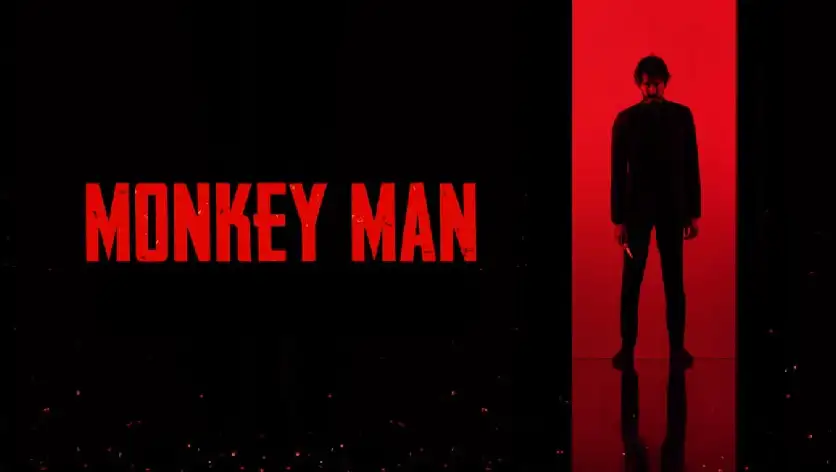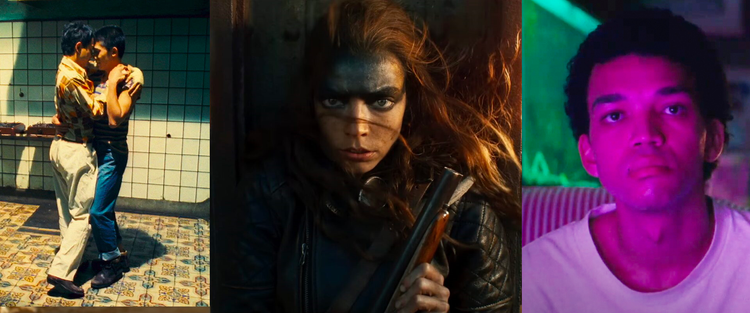Breaking Takes: What I've Been Watching

Greetings! It's been a minute, hasn't it? The last few entries took a lot out of me, and I haven't been able to put together my usual lengthy exegesis as timely as I had been. In truth that pace of production was starting to demand too much time, so I'm going to try to rebalance things: give the bigger pieces the time they need to percolate, and in the meantime put out some shorter, looser takes that will allow me to talk about more things rather than have my time monopolized by one topic. To kick that off, here are a few things I've been taking in these past few weeks.
Alien: Its Structural Perfection Is Matched Only By Its Hostility
Do movies even have tag lines anymore? I'm sure they do, but damned if I can think of the last one that was truly memorable and attention-getting, what with half the movies coming out these days being made explicitly because they already have an audience. "What is the Matrix?" was a good one, so was "An adventure 65 million years in the making." But you really couldn't ask for better than "In space, no one can hear you scream."
Like the best advertising that's a lie. You can hear the screams in Alien, and so much more. I caught the movie, one of my favorites, in a 45th anniversary showing, and the sound design was a genuine revelations. The most obvious benefit of seeing a movie in a good theater is the screen size, but I'm increasingly of the mind that the audio benefits even more. I have to have seen Alien at least a dozen times, but I can't recall ever getting so much clarity and depth to its soundscape. The opening title alone has layers of instrumentation to Jerry Goldsmith's wonderful score that I had never picked up on before, and which throughout the movie are cannily weaved into the industrial ambience so you can't tell where one ends and the other begins. The background noise had always registered to me as an low, undistinguished deep space drone, but in the theater I could pick up on so many environmental details. Little repetitive rattles and beeps and rustles, even Jonesie's faint distant mewing when Brett tries to find him, all complement the production design in creating a space ship environment that feels both believable and hostile.
I'll have more to say about Alien and its legacy when its modernization, Alien: Romulus comes out this summer, but for now suffice to say that it's one of those movies that gives you good reason to revisit it, and new things to catch when you do.
Challengers: I Am Love 30
There's a sequence toward the end of Challengers that is nothing but five minutes of Mike Faist, Zendaya, and Josh O'Connor exchanging sweaty glances while Trent Reznor and Atticus Ross' retrocore electronica thrums along, and it truly feels like the climax of a furtively horny Sergio Leone spaghetti western. The Good, the Bad, and the Underhanded Serve.
That's the fun of the thing, really. These are faintly awful people, these tennis champs who had very different career trajectories after a youthful dalliance one fateful night. But they are also beautiful, and this is a romantic fantasy, and so some bad behavior is part of the indulgence. It also warns of the perils of perfection and love of self and others is strictly measured, sometimes in actual dollars. These are peak performing athletes, and much of their estimation of themselves, and each other, is quantified and ranked, with one character going so far as to cut another down by telling them they are only the xxxth best tennis player in the world. They are nothing without their professional accomplishment, so they think, which makes the framing device of a duel at a podunk challenger match in friggin New Rochelle a humiliation and a wake-up-or-break‐up call for all three of them. The developments in the back end of the movie are all about testing just how much their professional pride is worth.
That this love triangle is omnidirectional just gives it that much more frisson, which Luca Guadanigno translates into scenes that are energetically directed even when it involves something so simple as two characters sitting down. There is tremendous invention in how the tennis matches are shot, especially in those last few minutes, but it really comes down to the essentials: two men, taking each other's measure, trying to impress each other as much as the woman between them, both evenly matched, both unwilling to give an inch, reminding each other of who they were—the ecstasy of old.
Monkey Man: Hope I'm Not Too Messianic, Or a Trifle Hanumanic
Dev Patel might be a little nuts, which is an asset for a genre film. Making a martial arts action movie for one's directorial debut is already not making it easy for oneself, but making one that sticks a thumb in the eye of the Indian government and gouges it out—that's more dangerous than any stunt Patel performs on camera, and is indicative of where Monkey Man's strengths lie.
The sensational trailer promised elaborately brutal action, and the movie delivers it eventually, but it starts off rough, in the wrong way. There is a lot of setup, with our unnamed hero, credited as Kid (Patel), taking deliberate steps to get close to Rana Singh (Sakandar Kher), a vicious and corrupt chief of police. Not a problem in itself, but the movie withholds most of its backstory for a long time. It makes the earlygoing scenes, where Kid is working his way onto the staff of a high-end restaurant, somewhat confusing; we assume this will help him take his revenge, but it's not clear why until much later.
The first half also suffers the most from Patel's over-reliance on shaky claustrophobic medium close-ups and choppy editing, which blunts the impact of the fight scenes and causes problems with continuity and basic geography. There's an extended chase sequence across multiple locations that is cut together so messily that I had no idea how Kid ended up in the new areas. Most of the ironic needle drops and distracting lifts from John Wick are also found in the first half. It all feels a little too familiar, hewing too closely to modern action templates and only using its sociopolitical backdrop as set dressing and not having strong enough fights to put it over.
Much like its hero, the movie finds itself halfway through. Kid's motivation for revenge is fleshed out, and the movie's cultural specificity is sharpened to a knife's edge. For Rana Singh is a stooge for spiritually corrupt guru Baba Shakti (Makarand Deshpande), who leverages his following for political favors from a Hindu nationalist party that is Indian Prime Minister Narendra Modi's BJP in all but name. The movie is angry about modern India's sectarian turn on an almost spiritual level—during the fight scenes Patel plays Kid like a man possessed—but it balances that fury with compassion for and solidarity with its victims. It earnestly makes a claim for the same religious mantle as the nationalists, but with the lovingly retold story of Hanuman the Monkey King as a framework for protecting the weak rather than justifying the strong. All of this provides an exhilerating, subversive thrill to the final stretch of action, which finally opens up the camera framing and uses some longer shots. By the movie's end it has left its influences behind and channeled its grindhouse energy into something bigger and weightier but no less fleet-footed.
Monkey Man's full-throated call for defense of the defenseless against the depredations of fascist nationalist movements was enough for Netflix to sit on the movie movie for three years. The only reason it even came to theaters at all was because Netflix felt it better to give the movie away to Jordan Peele and Universal rather than ruffle feathers in the Indian government and streaming market. I do wish it were a better version of itself, but it's a bold and confident debut for Patel, one that takes some big swings at deserving targets.
Other Stuff: Eclectic Ladyland
- I tried and failed to play through free-to-play mobile title Nier: Reincarnation before it shut down for good on April 30. I have very many things to say about the media purgatory it exists in, which is part of why I haven't put anything out in a few weeks. The short version is it's unacceptable that others will never have the opportunity to be as frustrated with it as I was.
- For that piece I'm going through the work of the Nier series' oddball creative director Yoko Taro and am currently halfway through his 2023 anime limited series KamiErabi God.app. It's about a group of high schoolers given super powers so they may fight each other to the death, with the winner becoming God. Which sounds weird, but is actually an entire subgenre of anime, death game, and the series was widely panned for bringing little new to the table. Like so much of Taro's work it is incredibly uneven, but his signature touches of existential melodrama make for some real highs.
- For a taste of Yoko Taro's breadth of eccentricity, here is a puppet show music video he directed about robot weapons lamenting that they were born to die.
- I need to read more often and am gradually making my way through the 2014 publication J.R.R. Tolkien's essay On Fairy-Stories, a defense of the fantastic as worthy entertainment for more than just children. It contains his ideas about the appeal of reading and writing stories and the creation of "secondary worlds," as he was in the midst of laying out his own with The Lord of the Rings. As the corporate owners of that series—I'm sorry, IP—strip-mine it for Content tailings, it's nice to be reminded that its fount was a person for whom creativity was a subspecies of divinity.


Member discussion